20 Foods You Didn't Know Were Ultra-Processed

Ultra-processed foods currently make up nearly 60% of what a typical adult in the United States eats and make up almost 70% of what children eat. "UPFs are generally composed of processed carbohydrates that are very quickly broken down into simple sugars, equivalent to eating lots of candy," says Andrew E. Budson, MD, via Harvard Health. "These sugar loads cause spikes of insulin, which can alter normal brain cell function. Eating ultra-processed foods is associated with a higher risk of metabolic syndrome and obesity, well-established conditions linked to high blood pressure, abnormal blood lipid levels, and type 2 diabetes." Certain foods are commonly known to be ultra-processed (such as frozen pizza or hot dogs), but others may not be as obvious. Here are 20 foods you may not know are ultra-processed, even ones marketed as "health" foods.
Plant-Based Milks
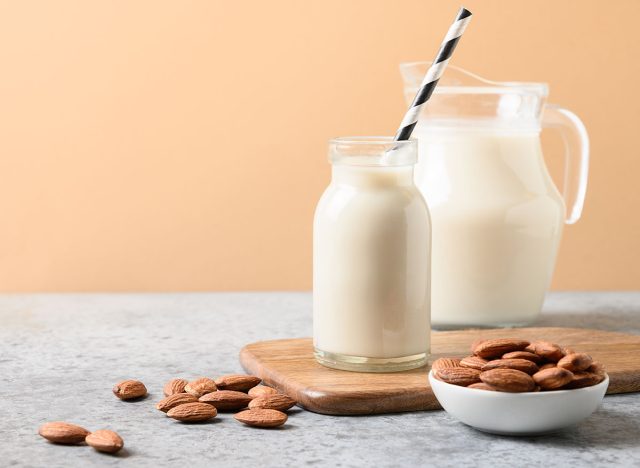
Plant-based types of milk, such as oat milk, are typically ultra-processed. "This is marketed as a healthy alternative to cow's milk when, in reality, it's a UPF," Dr Sarah Berry, associate professor in the department of nutritional sciences at King's College, London, tells Women's Fitness.
Canned/Jarred Sauces

Many supermarket canned and jarred sauces are full of additives to make them shelf-stable. Always check the label for ingredients you don't recognize.
Bread
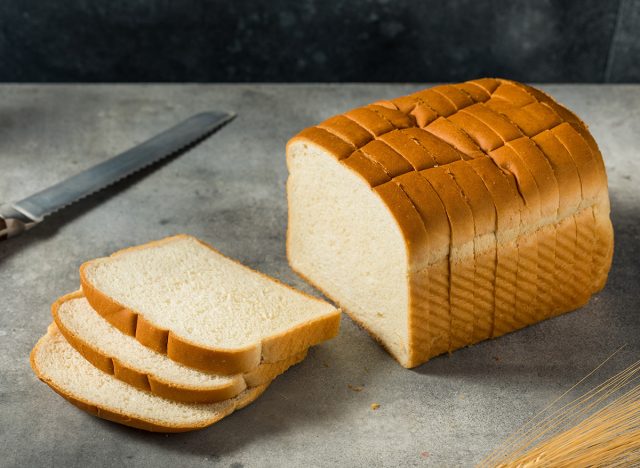
Not all bread is created equal. A simple loaf of sourdough with four ingredients is not in the same universe as cheap ultra-processed bread packed with high-fructose corn syrup and over 20 other additives. Always check the label—even so-called "healthy" whole wheat bread might shock you.
Flavored Yogurts
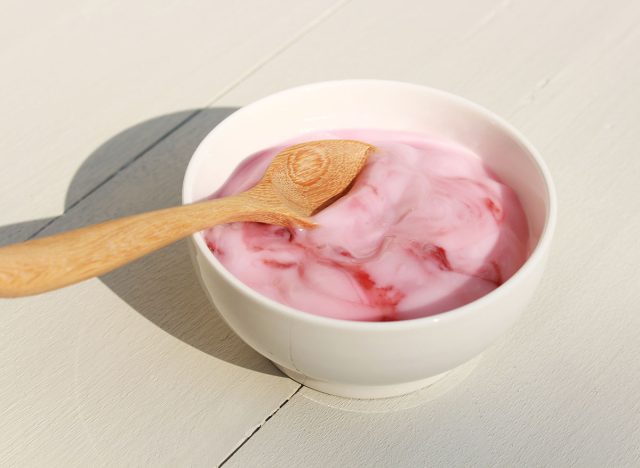
Flavored yogurts are heavily processed and tend to have lots of additives. If you want to enjoy yogurt with flavor, simply buy regular yogurt and add your own fruit.
Cured Meats
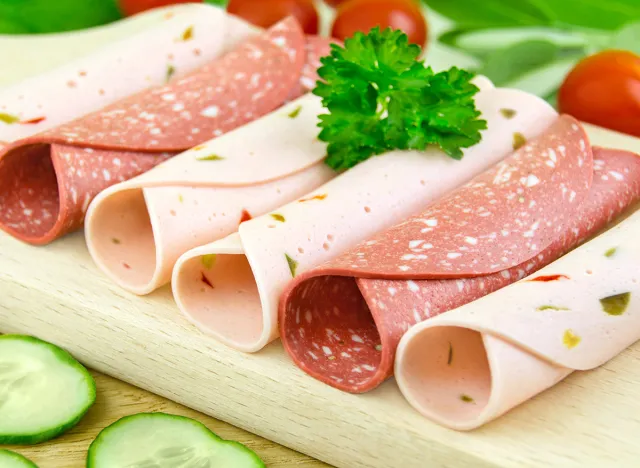
Cured meats are notorious for being ultra-processed, but some are much worse than others. "Deli meat that is sliced fresh off the bone or slab may contain natural nitrates and can be less processed," Julia Zumpano, RD, LD, tells the Cleveland Clinic. She recommends choosing lean meats when possible. "These types of deli meat have the least amount of fat and provide a better nutrient value compared to others."
Protein Bars

Protein bars and other meal replacement bars are often packed with unhealthy ingredients. "Many foods formulated for health purposes like weight loss or added protein frequently undergo high levels of processing and contain a laundry list of not-so-healthy ingredients," registered nutritionist Sarah Garone tells Newsweek. "Many protein bars, weight loss shakes, and energy drinks, for example, are extremely processed."
Vegan "Meat"
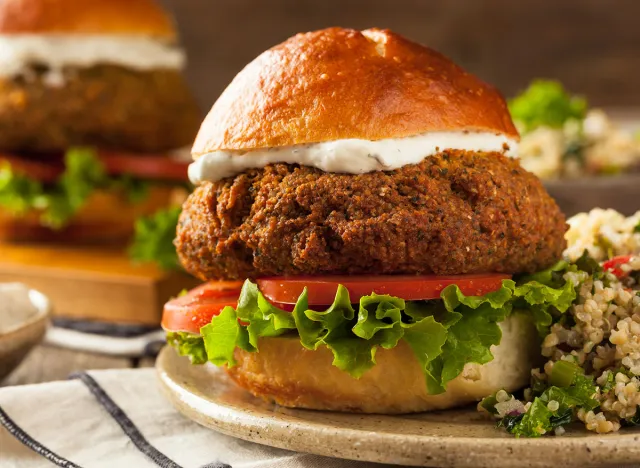
Vegan meat may be touted as a healthier and more environmentally friendly alternative to regular meat, but it's one of the most ultra-processed foods available. "While ultra-processed foods are often marketed as healthy foods, this large study suggests that plant-based ultra-processed foods do not seem to have protective health effects and are linked to poor health outcomes," says Dr. Eszter Vamos.
Breakfast Cereals
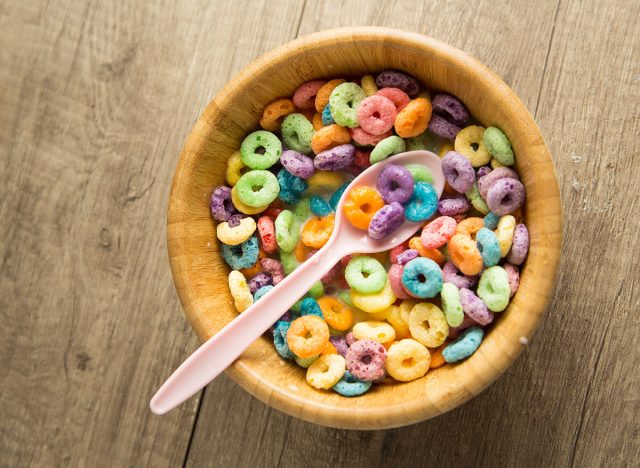
Breakfast cereals, even the ones marketed as healthy, are ultra-processed foods. They also tend to be packed with sugar and other unhealthy ingredients. Check the label to make sure what you're getting is actually minimally processed (like oatmeal).
Granola Bars
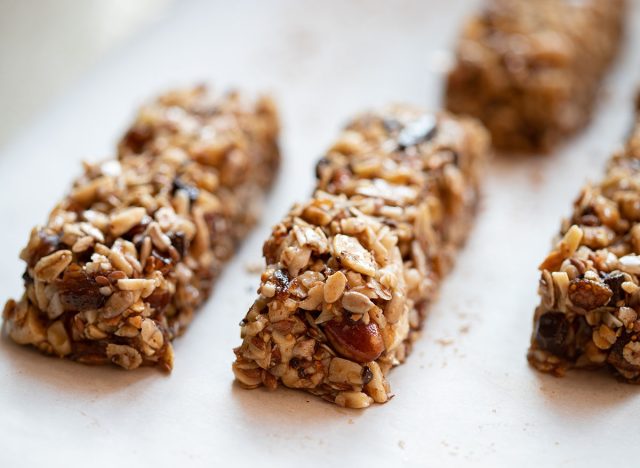
Granola bars may be marketed as healthy, but many of the mass-produced bars sold in supermarkets are ultra-processed. Some contain as much sugar as a candy bar.
RELATED: 20 Superfoods for People Over 50
Margarine

Margarines are considered an ultra-processed food. "The way kinds of margarine and non-dairy spreads are made (by hydrogenating the vegetable oils) and the additives they contain, such as emulsifiers and colors, make them an ultra-processed food – unlike butter, which is essentially cream and some salt," experts tell The Conversation.
Chocolate

Not all chocolate is created equal. "Chocolate is delicious; there's no getting around it. But much of it is ultra-processed, containing a wide range of additives," according to ZOE. "With that said, it's best to opt for minimally processed dark chocolate. This contains 70% cocoa or more, which doesn't leave room for a lot of added sugar and other additives."
Egg Substitutes
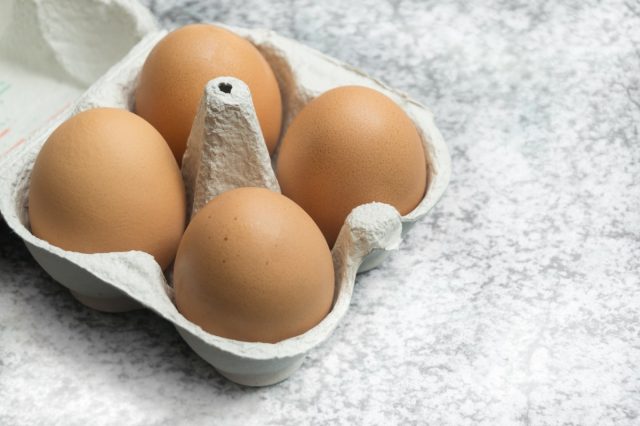
Egg substitutes are not whole foods and are considered an ultra-processed product. "Ultra-processed foods typically have more than one ingredient that you never or rarely find in a kitchen," senior dietitian Victoria Taylor says via the British Heart Foundation. "They also tend to include many additives and ingredients that are not typically used in home cooking, such as preservatives, emulsifiers, sweeteners, and artificial colors and flavors."
Veggie Chips
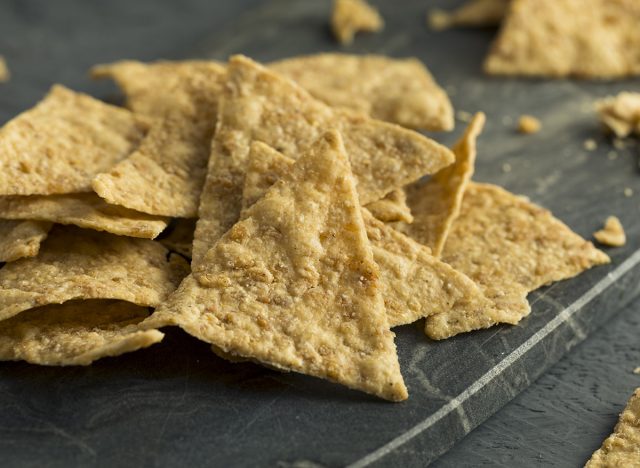
Store-bought veggie chips are often packed with unhealthy ingredients. Always check the label to see how many ingredients are in what might be marketed as a healthy alternative to potato chips.
Spinach Tortillas
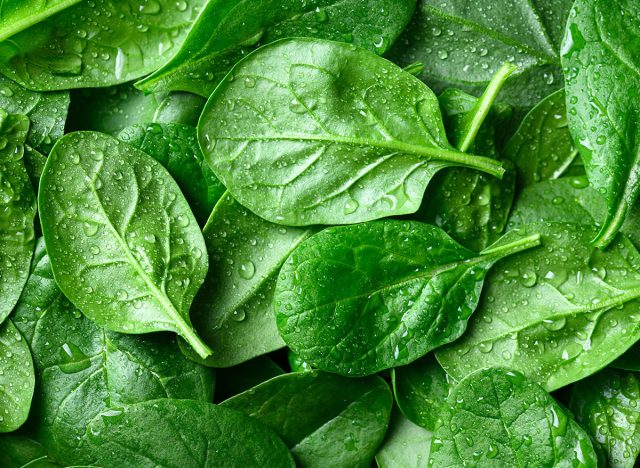
Spinach tortillas, especially the ones marketed as low-carb, are an ultra-processed food. "The reality is that these foods are extremely convenient in our busy lives," Beth Czerwony, RD, LD, tells the Cleveland Clinic. "But by cooking at home, modifying recipes, and learning how to take in less fat and sugar, you can learn to achieve a more balanced diet."
Frozen Diet Meals

Check the ingredients on your "healthy" frozen diet meal before you buy it—the ingredients may surprise you. Many frozen meals are ultra-processed. "The added sugar, fat, and salt in these foods means they have more calories than whole and minimally processed foods," Czerwony says. "These added ingredients also cause inflammation inside the body, which is directly correlated with developing a variety of diseases."
RELATED: 5 Daily Moves to Boost Bone Density After 50
Ice Cream

Most supermarket ice creams are ultra-processed. "You can easily create a sweet treat using whole foods or minimally processed foods," dietitian Lindsey Wohlford tells MD Anderson Cancer Center. "This will make your dessert a treat that is actually beneficial to your body."
Soda Drinks

Sugary sodas are terrible for your health for many reasons. "Some [ultra-processed foods] I would never consume, such as soda," Jinan Banna, registered dietitian and professor of nutrition at the University of Hawaii, tells CNBC Make It. "Soda doesn't have any nutritional value other than just calories in the form of sugar. So they're empty calories, which don't give us any of the nutrients that we need."
Instant Noodles

Instant noodles are typically ultra-processed. "It's one of the most unhealthy ultra-processed foods because of the amount of sodium and kinds of fats," nutrition professor Barry Popkin, PhD, tells The Guardian. "The fact that people are eating two or three [packets] a day – it's no wonder hypertension is skyrocketing."
Packaged Soups
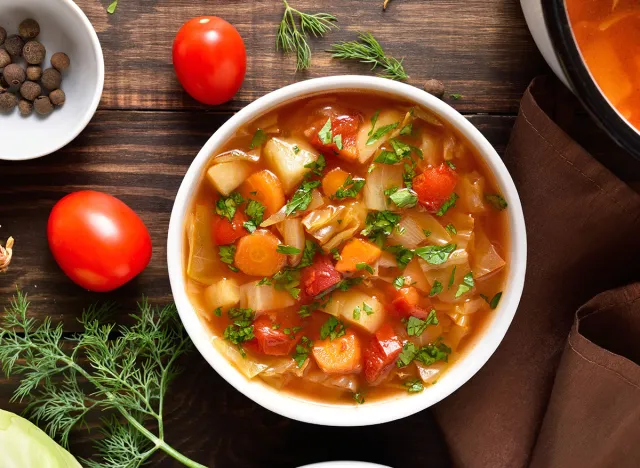
Packaged soups may seem innocent but they are considered ultra-processed food. "While 'junk food' and most fast food would be considered ultra-processed foods, so are canned soups and frozen dinners," Elizabeth Cabrera, CNSC, tells LCMC Health.
RELATED: I Lost 66 Pounds by Eating Fajitas and Doing These 11 Things Every Day
Focus on the Big Picture

A good rule of thumb is to eat whole foods as much as possible. "A healthy diet has room for all foods," Garone says. "But we do know that the closer you eat foods to their natural state and the more you emphasize whole plant foods, the better off you'll be. In the real world, [UPFs are] sometimes unavoidable. Strive for eating minimally processed foods whenever possible, but don't worry too much if you occasionally consume something ultra-processed. A healthy diet is about the overall big picture." And if you enjoyed this article, take advantage of these 15 Quick Ways to Lose Body Fat Percentage in a Week.




